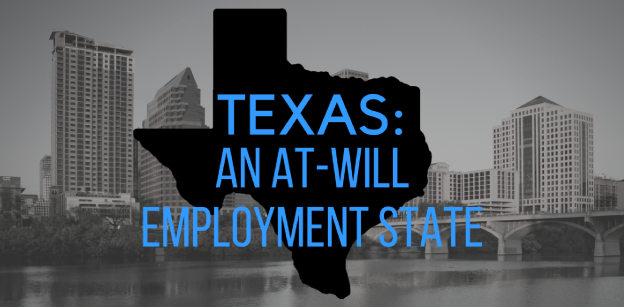You may have read it in a job application or had a potential employer tell you that the job is “at-will”. Or you may have had an employer threaten your job and tell you that it is “at-will” or that Texas is a “right to work state”. While these terms may be common in the employment world, it is important to understand what they actually mean. In Texas, an employee may generally be fired for any reason (a good reason, a bad reason, a wrong reason, or no reason). Likewise, an employee may generally choose to quit his or her employment for any reason. However, there are certain limitations to the principle of at-will employment.
First, State and Federal law prohibit discrimination and retaliation in employment
While it is true that Texas is an at-will employment state, employers cannot terminate an employee based on his/her gender, race, age (over the age of 40), national origin, color, or religion. Chapter 21 of the Texas Labor Code and Title VII of the Civil Rights Act of 1964 both prohibit discrimination in employment; which includes terminating an employee for a discriminatory reason. Both of these laws also prohibit employers from terminating an employee in retaliation for the employee’s complaint of discriminatory treatment. That means that an employee cannot be fired because he/she complains to the company about discrimination towards himself/herself or towards another employee. Employers also cannot fire an employee because of his/her participation in an investigation of another employee’s charge of discrimination with the Texas Workforce Commission or Equal Employment Opportunity Commission.
An employment contract may give an employee certain rights to the job
Most employment agreements will specifically state that the job you are accepting is at-will and may be terminated by either party at any time. However, occasionally an employment agreement will provide for the employee to remain employed for a specific period of time (1 year or more), and it will limit the ability of the employee and the employer to terminate that employment relationship early. Sometimes, these agreements will state that the employee may be terminated only for “good cause”, which could include things like a violation of company policy or prolonged performance issues. Other times, the agreement will merely state that a certain amount of notice (30-60-90 days) is required for either party to terminate the relationship. Ultimately, you are entitled to certain rights if you have signed an employment agreement that limits your employer’s ability to fire you. This may include your ability to obtain a severance payment if you are terminated from your job (a) without good cause or (b) without proper notice.
Always consult with an employment lawyer
Just because Texas is an at-will employment state, it does not mean that employees have zero rights. If you are an employee in Texas and believe that you have either been discriminated/retaliated against or fired in violation of your employment agreement, you should always consult with an employment lawyer. An attorney can review the facts to determine if you have a valid claim against your employer and advise you of your legal rights.








